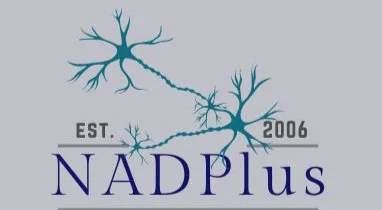Unraveling the Powerhouses of Our Cells: NAD+ and the Essential Role in Mitochondrial Function
Within the intricate machinery of our cells lies a crucial element responsible for sustaining life as we know it - mitochondria. Often dubbed the "powerhouses of the cell," mitochondria play a pivotal role in energy production. However, their optimal functionality is contingent on a lesser-known yet vital compound - NAD+ (nicotinamide adenine dinucleotide), and the significance of NAD+ in ensuring healthy mitochondrial function and the potential benefits of NAD+ therapy in boosting cellular energy production and overall cellular health.
The Role of Mitochondria in Energy Production:
Mitochondria act as cellular power plants, converting nutrients into adenosine triphosphate (ATP), the primary currency of cellular energy. ATP fuels essential cellular processes, such as muscle contraction, nerve signaling, and biosynthesis, enabling our bodies to function optimally. Without efficient mitochondrial function, cellular energy production diminishes, leading to various health issues.
The Crucial Link: NAD+ and Mitochondrial Function:
NAD+ is a coenzyme found in all living cells, responsible for numerous vital biological processes. In the context of mitochondria, NAD+ plays a critical role in facilitating the electron transport chain (ETC) - a series of chemical reactions that produce ATP. During cellular respiration, NAD+ accepts electrons from glucose breakdown products, shuttling them through the ETC to generate ATP.
Moreover, NAD+ is integral to maintaining the delicate balance between energy production and oxidative stress. As mitochondria produce ATP, reactive oxygen species (ROS) are also generated, which can damage cellular components. NAD+ serves as a cofactor for various antioxidant enzymes, effectively neutralizing ROS and protecting the mitochondria from harm.
NAD+ Depletion and Cellular Health:
As we age, NAD+ levels naturally decline, negatively impacting mitochondrial function and cellular health. Reduced NAD+ availability impairs the ETC, leading to decreased ATP production and increased oxidative stress. This cellular deterioration contributes to age-related conditions, including neurodegenerative diseases, cardiovascular disorders, and metabolic dysfunction.
The Potential of NAD+ Therapy:
Recognizing the significance of NAD+ in maintaining cellular energy production and overall health, researchers have explored the potential of NAD+ therapy. By supplementing NAD+ levels, either through direct administration or precursors like nicotinamide riboside (NR) or nicotinamide mononucleotide (NMN), scientists aim to restore mitochondrial function and improve cellular resilience.
Studies in animal models and some clinical trials in humans have shown promising results. NAD+ therapy has been linked to enhanced mitochondrial function, increased ATP production, and reduced oxidative stress. Furthermore, NAD+ supplementation has shown potential in ameliorating age-related diseases and promoting longevity.
The critical role of NAD+ in supporting healthy mitochondrial function cannot be understated. Mitochondria serve as the energetic engines of our cells, and NAD+ acts as the key that keeps them running optimally. NAD+ therapy offers an exciting avenue for researchers and clinicians to explore potential interventions that may boost cellular energy production, mitigate age-related conditions, and ultimately improve cellular health. As our understanding of this intricate relationship continues to unfold, the future looks promising for harnessing the power of NAD+ to promote healthier aging, brain health, and overall well-being.

